Top 5 Mayan Cities in Mexico (with Photos, Prices and Opening Hours)

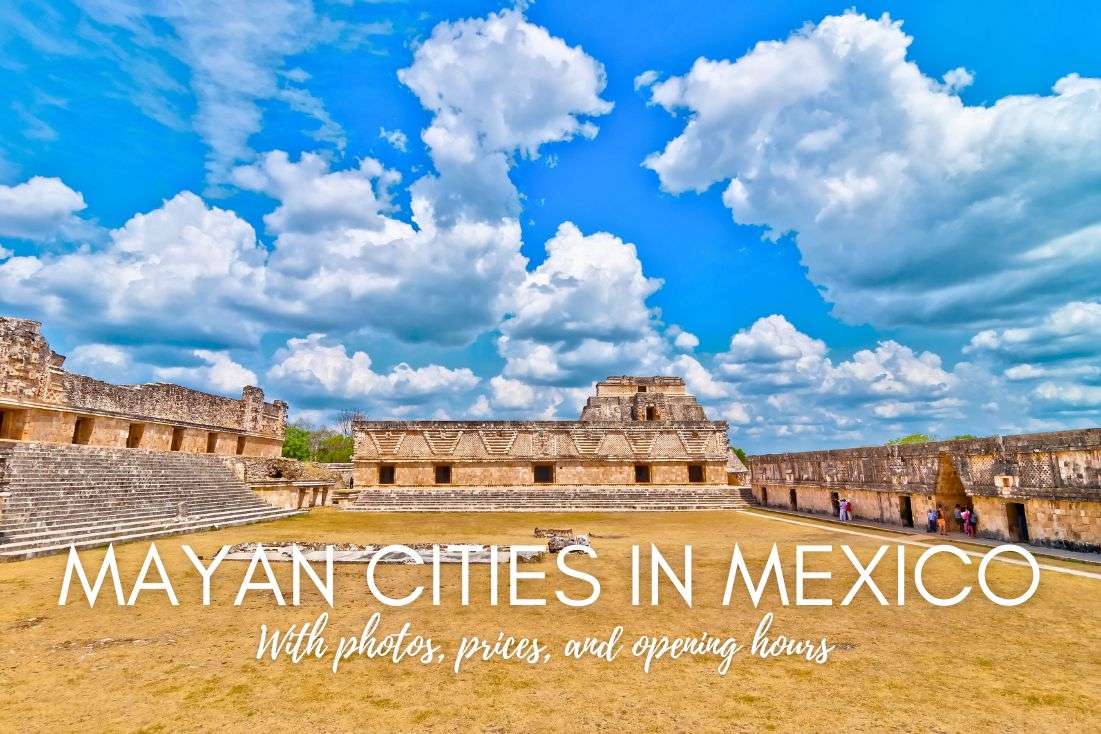
The genius, calendar-making Maya were also great architects, and millions of people visit their structures every year. Which Mayan cities in Mexico shouldn’t escape your attention? We are Jan and Karin, and we will show you the top 5 Mayan ruins in this article—photos and useful tourist information included!
You might also be interested in reading:
- Yucatán Itinerary—2 Weeks Full of the Best Places to Visit
- Safety in Mexico—Is It Safe to Travel There?
- The Best Food in Mexico: 11 Things You Should Try + 3 You Shouldn’t
- 7 Best Aztec Ruins in Mexico
- 33 Mexico Travel Tips from Our Own Experience
These are 5 best Mayan cities in Mexico:
1. Tulum
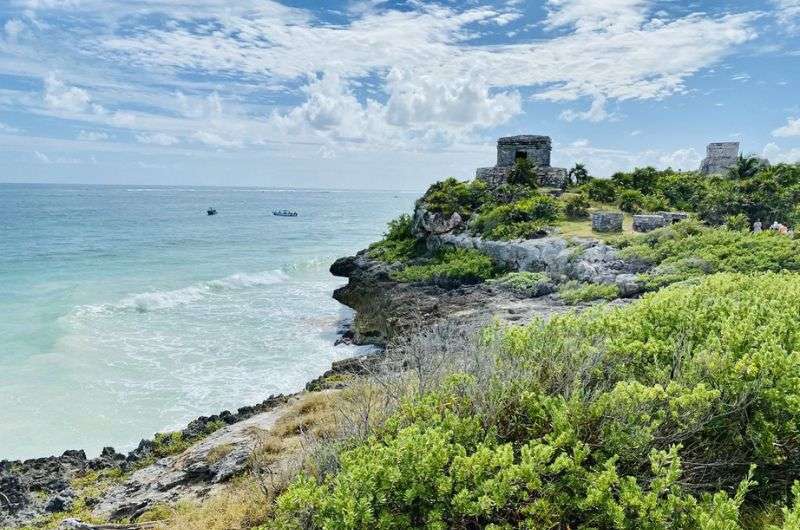
Number one is for Tulum
Tulum is the most popular Mayan site in Mexico, overhyped and overcrowded. You can’t swing a cat without hitting a tourist or two, and if you manage to find your way out of the chaotic masses of people, you’re a lucky man. But all of that is for good reason.
Tulum is a walled Mayan city which flourished as the main port of Yucatan between the 13th and 15th centuries. The city was rich, not only thanks to the port, but also thanks to its access to an important obsidian trading route. All in all, the city thrived, and that’s why local people built many beautiful monuments—resulting in beautiful Mayan ruins.
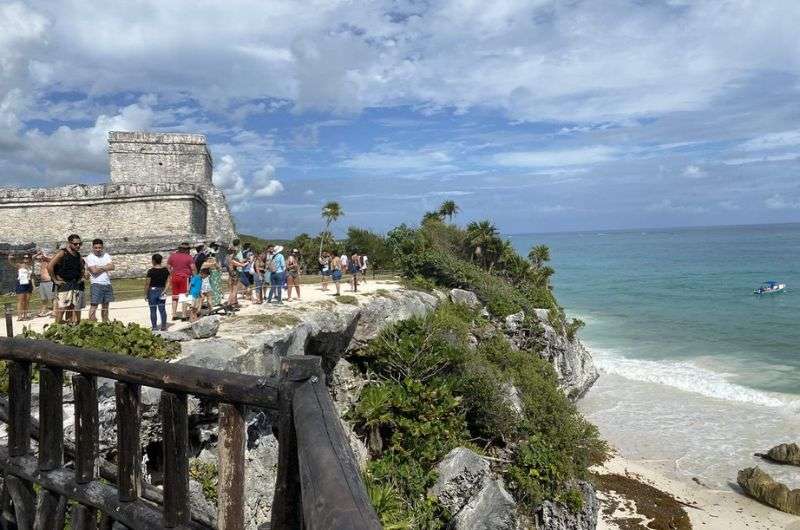
Tulum is very popular!
12-meter (39 feet) tall cliffs rise above sandy beaches, strewn with tourists soaking up the sun, and waiting to catch a glance of a ship in the turquoise-colored Caribbean Sea. The surrounding jungle is full of South American coati, animals very similar to raccoons—just prettier. Don’t provoke them though, they bite.
More problematic than biting monkeys, however, is the parking situation. A long asphalt road leads to the entrance to the archeological zone, and tourists park there whenever possible. But after 10 AM, the parking becomes hell near the entrance, and it’s better to park in the town of Tulum or in the official parking lot.
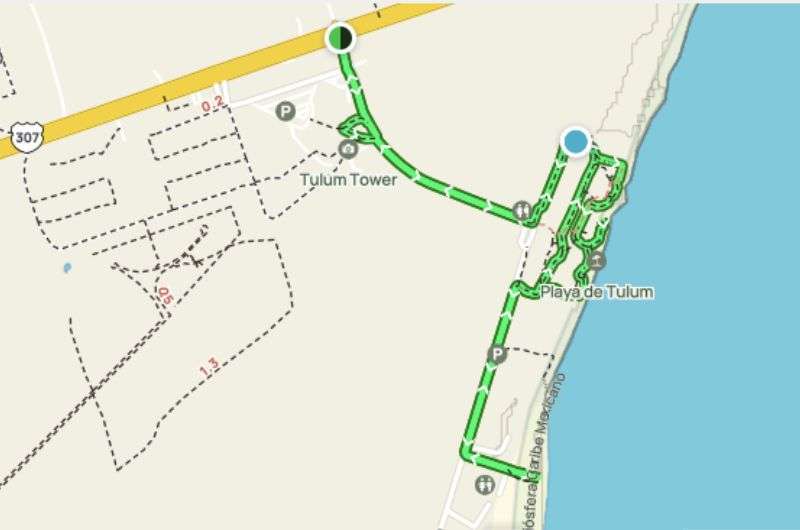
Check the trail around Tulum Mayan Ruin on alltrails
Travel tip: Tulum is an expensive destination. And when I say expensive, I mean ultra expensive. Don’t stay there overnight, and rather sleep in one of the nearby towns. The admission to the archeological site, on the other hand, is very cheap.
- Opening hours: 8 AM – 5 PM (you may avoid crowds if you get there as early as possible)
- Price: 80 Mexican pesos (4 US dollars)
- Address (parking lot): Yalku Manzana 1 Lote 3 Las Ruinas, 77780 Tulum, Q.R., Mexico
2. Chichén Itzá
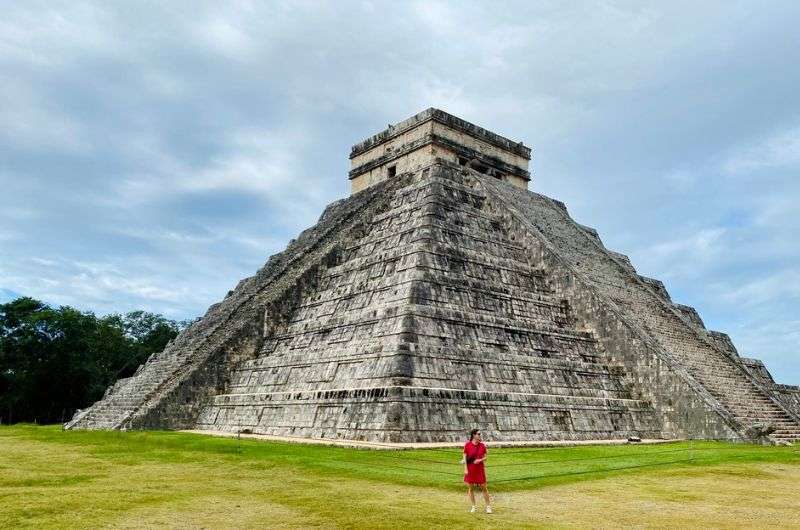
The amazing ruin at Chichén Itzá!
If you’re fascinated by monumental Mayan pyramids and ancient gods, Chichén Itzá is where you need to go. The fusion of Toltec and Mayan cultures makes the city a unique complex, worth spending at least four hours in.
In 2007, Chichén Itzá was declared one of the 7 New World Wonders. Maybe that’s why it’s almost as crowded as Tulum, and definitely more expensive—get ready to pay 533 Mexican pesos (27 US dollars) for the ticket.
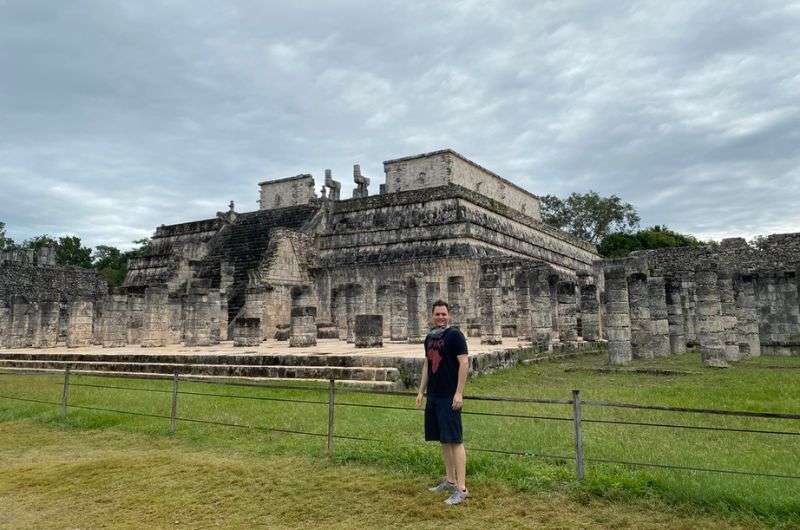
Me and the Chichén Itzá ruin
The most notable Mayan ruins in Chichén Itzá are the Temple of Kukulcán, Thousand Columns, the Great Ball Court, or Platform of the Skulls. Find out more in my detailed guide to Chichén Itzá, full of tips and tricks.
- Opening hours: 8 AM – 5 PM daily, the last entrance at 4 PM
- Price: 533 Mexican pesos (27 US dollars)
- Address (parking lot): Chichén-Itzá, Yucatan, Mexico
3. Palenque
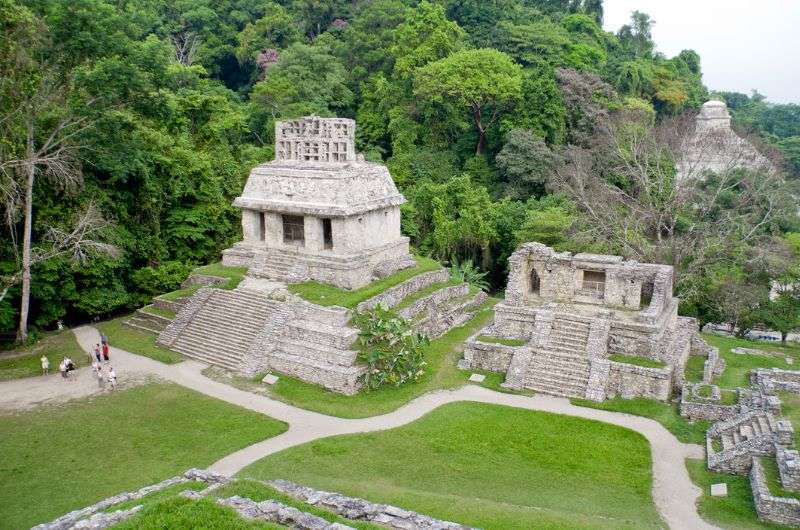
Palenque, the hidden ruin
Palenque is the ruin of a Mayan city state, hidden in the jungle. On one hand, it’s smaller than Tulum or Chichén Itzá, but on the other, it’s just as remarkable. The city dates back to the period between the 3rd and 8th centuries when it lived mostly off agriculture.
You can dive into the exotic and mysterious atmosphere of the Mayan city of Palenque, and explore its architectural gems, bas-relief carvings, and hieroglyphs. It’s estimated that only 10% of the city has been discovered—the rest is waiting silently in the jungle.
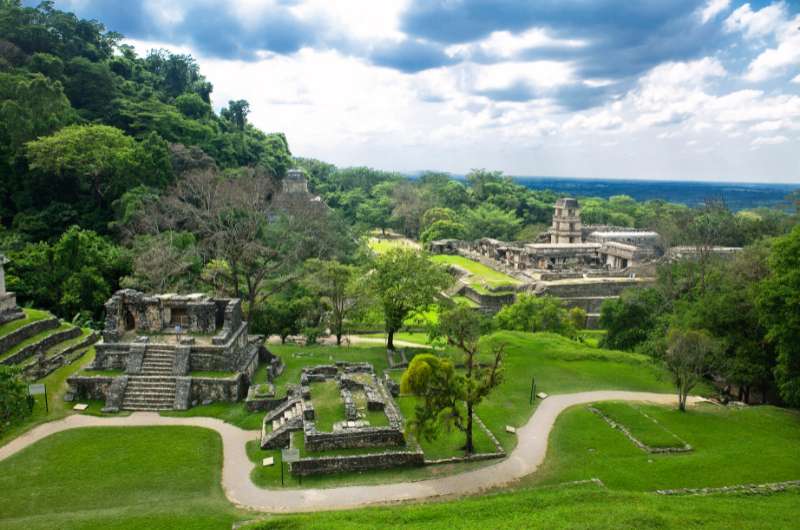
Beautiful but beware of armed thieves!
Travel tip: I have a piece of advice for you, my friends: Beware! Palenque is absolutely breathtaking and beautiful, but at the same time infamous for armed robberies, which take place in the area from time to time. All in all, Palenque is wild, quite remote, and slightly dangerous. But still worth it.
- Opening hours: 8 AM – 4:30 PM daily
- Price: 35 Mexican pesos (1.75 US dollars) for the entrance to the national park, and further 75 pesos (3.75 US dollars) for the entrance to the ruins
- Address (parking lot): Carretera a Palenque- Zona Archaeologica Km. 8, 29960 Palenque, Chis., Mexico
4. Uxmal
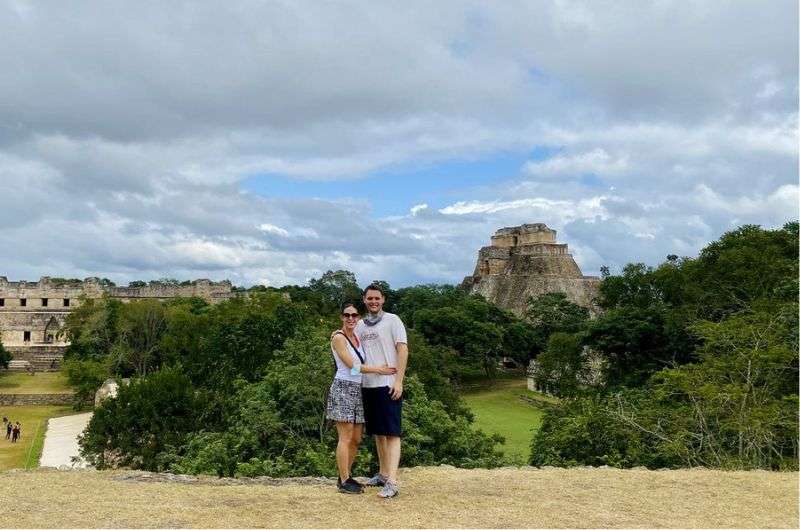
Hapy me, happy Karin and the city of Uxmal
Uxmal is a Mayan city in the jungle, located near Mérida in Yucatan. Maybe it looks familiar to you, especially if you’re a sci-fi fan. In Star Wars Episode IV, the Millennium Falcon landed on a temple on Yavin. And you guess right: Yavin is Uxmal.
The city was constructed in the 9th century and was home to 15,000 people. Puuc style is typical for the buildings: smooth walls, columns, and reliefs representing snakes. The one thing which grabbed my attention and didn’t let go, was the ball game court. The Maya were absolutely obsessed with tlachtli, a game in which they had to toss a rubber ball through a circle. Sometimes, the losing team was ritually sacrificed.
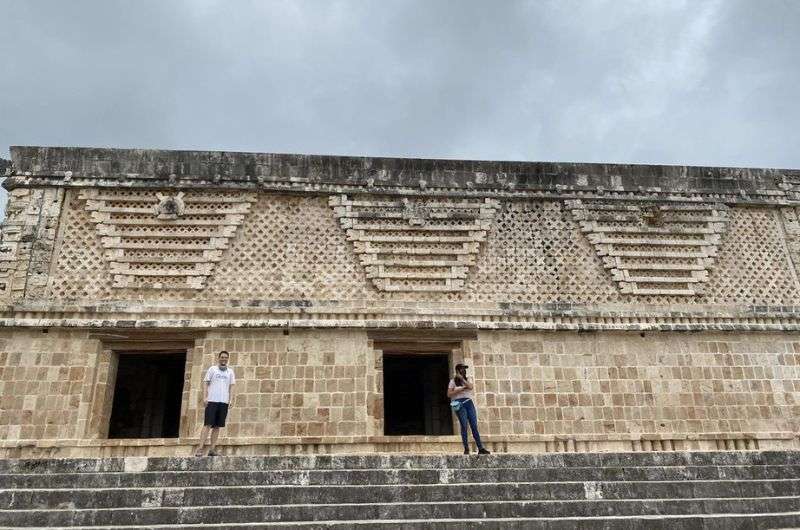
Yavin!
Travel tip: Jump the gun and arrive on the spot as early as possible. Later, parking will become almost impossible, and the flocks of tourists will drive you up a wall. Get ready to spend approximately 2–3 hours in Uxmal.
- Opening hours: 8 AM – 5 PM daily
- Price: 428 Mexican pesos (21.5 US dollars)
- Address (parking lot): Kabah, Yucatan, Mexico
5. Coba
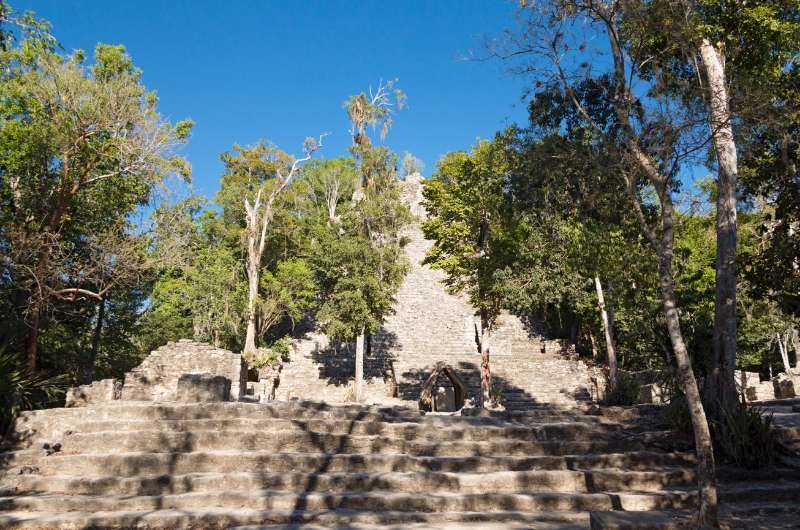
Coba
A bit off the beaten path, Coba will finally allow you to get rid of the creeping feeling that you hate tourists. Located on the Yucatan Peninsula near Tulum, Coba is estimated to have had around 50,000 inhabitants at its peak between 200 and 600 AD.
Tall temples rise above two lagoons, Laguna Cobá and Laguna Macanxoc, and the land area of the Mayan city expands to 80 square kilometers (30 square miles) of the jungle. It includes temples, pyramids, and clusters of houses.
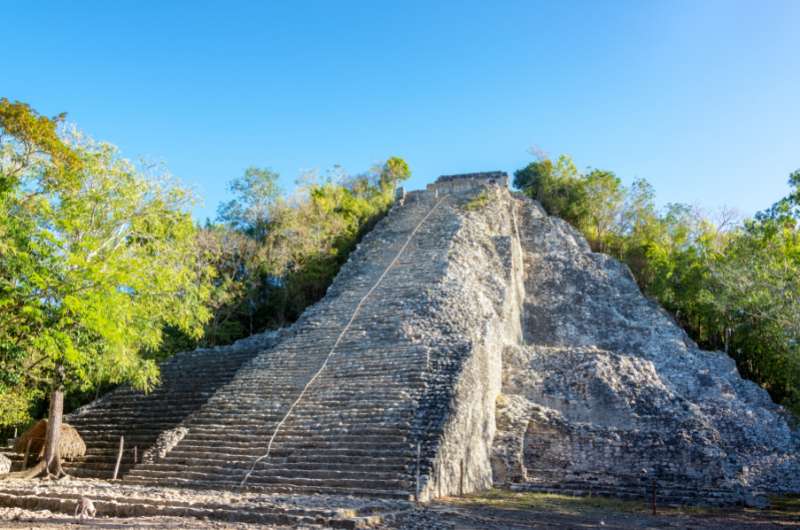
The 42 meters tall Nohoch Mul Pyramid
Travel tip: Get your heart pumping with adrenaline and climb one of the highest Mayan pyramids in the world! Nohoch Mul Pyramid is 42 meters (137 feet) tall and offers a helping hand to all adventurous tourists—a rope, hanging down the stairs to help you get up.
- Opening hours: 8 AM – 5 PM daily
- Price: 80 Mexican pesos (4 US dollars)
- Address (parking lot): Carretera Federal Tulum 307, 77793 Cobá, Q.R., Mexico
What you should know about Mayan civilization
The Maya are known to excel at mathematics, astronomy, and—as we all strongly realized in 2012—calendar making. Who are these mysterious people, inhabiting Mexico till today?
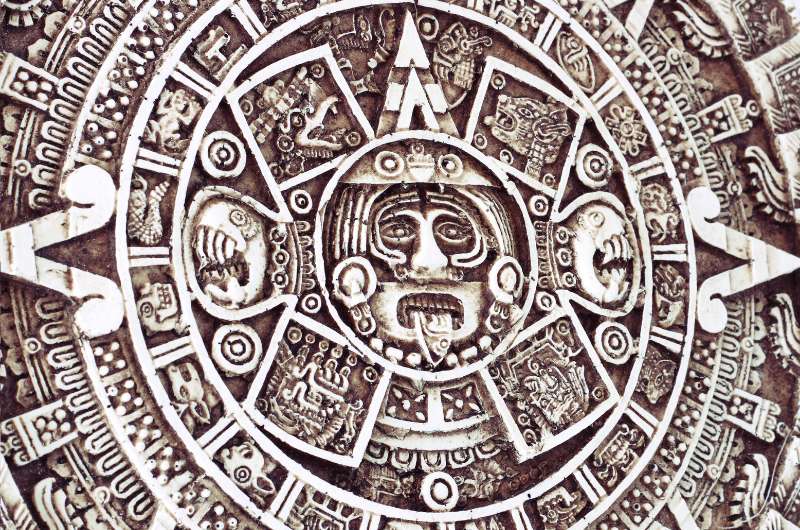
The Mayan calendar
The Maya civilization developed in the area of modern-day Guatemala, Belize, and south-eastern Mexico, and the beginnings of the civilization date as far in history as 2600 BC. First, the Maya only played with clay and created pottery, but later, they started forming large monuments and building unbelievable cities.
The golden age of the Maya empire was in the Classic Period (250–900 AD). Gigantic cities rose in perfectly calculated, geometric structures, and were filled with Mayan pyramids, temples, plazas, tombs, and terraces. Several city states existed at the same time; from time to time they competed, but they also cooperated in trade. Consequently, Mayan cities were both military and economic superpowers.
The Maya were worshippers of nature deities, such as the god of the sun, or the god of the rain. Probably the most famous Mayan god is Kukulcán, the feathered serpent, who was cunningly used to manipulate people in Chichén Itzá.
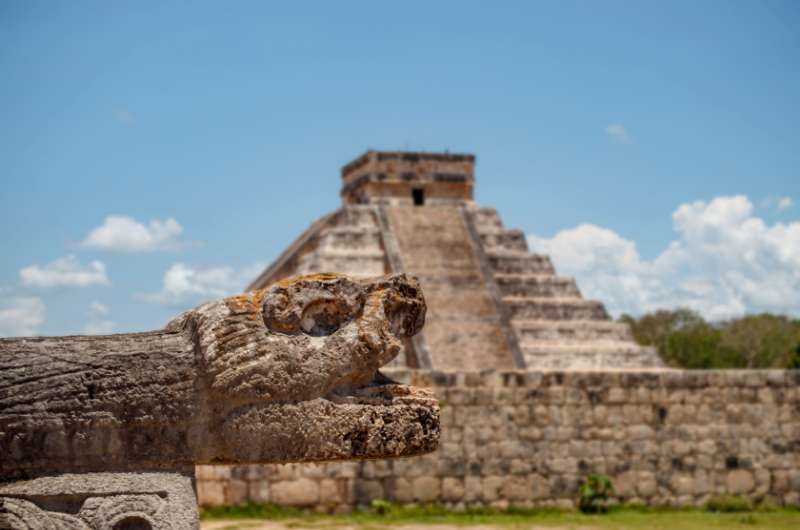
Mayan civilizations used to sacrifice a lot of people to the gods
Mayan civilization didn’t hesitate to sacrifice people to the gods, but if you compare the sacrifices to those made in Aztec cities, the Maya almost seem gentle as lambs. Unlike the Aztecs, who allegedly butchered 80,000 prisoners in the course of four days, the Maya only occasionally threw people in sinkholes or sacrificed the losers of tlachtli. Life in those days must have been full of uncertainty, as human sacrifice was a common thing in all ancient cultures in Mexico.
Other must-visit ruins in Mexico
Mexico is scattered with ancient ruins, and not only of Maya origin. You should definitely visit Teotihuacan, the largest ancient city in Western Hemisphere. It’s surrounded by a real air of mystery, as archeologists and historians still have no idea who built it. And it’s just an hour-long drive from Mexico City.
Another site worth your notice is Monte Albán, built by the Zapotec civilization. What makes it stand out is especially its location in the mountains—not only does it give beautiful views of the valley, it also makes the city an undefeatable fortress. It’s made of hundreds of artificial terraces and stone monuments, built around 500 BC.
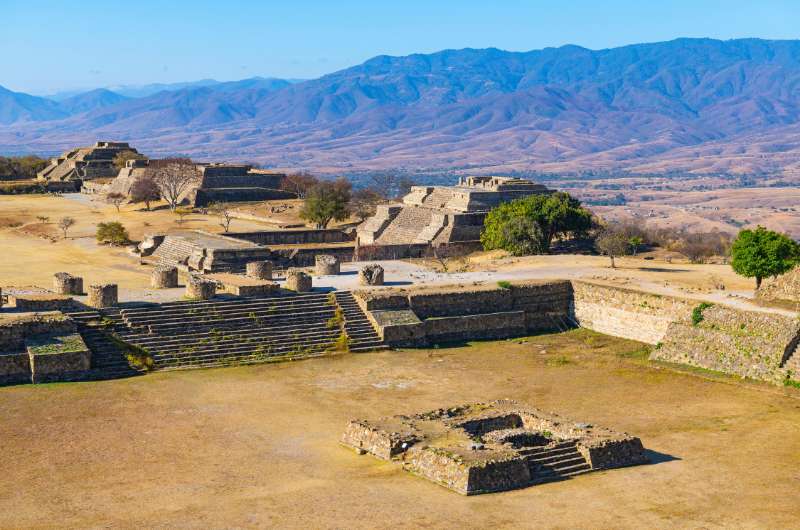
Monte Albán
And last but not least, you can visit some of the most impressive Aztec ruins in Mexico, including Tepozteco (dedicated to the god of alcohol), Texcoco (including ancient baths), or Tenochtitlan, the former center of the Aztec Empire.
This post contains affiliate links. I earn a small commission if you make bookings through my links, at no additional cost to you. This helps keep this blog free, thank you!


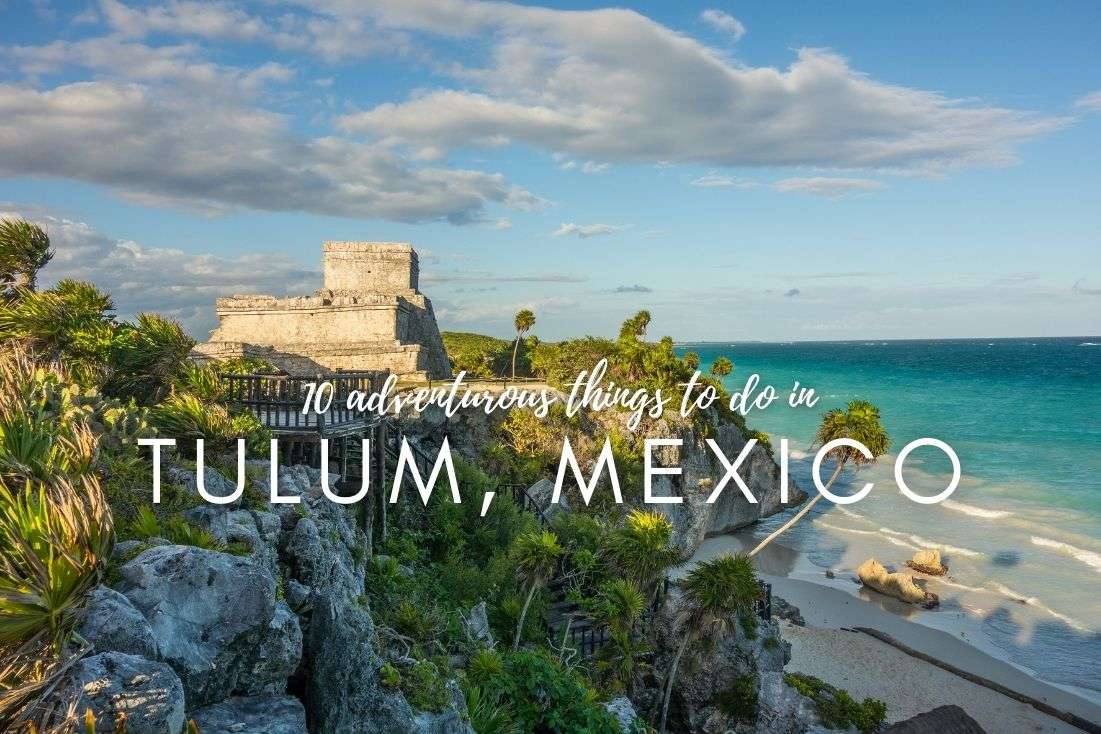
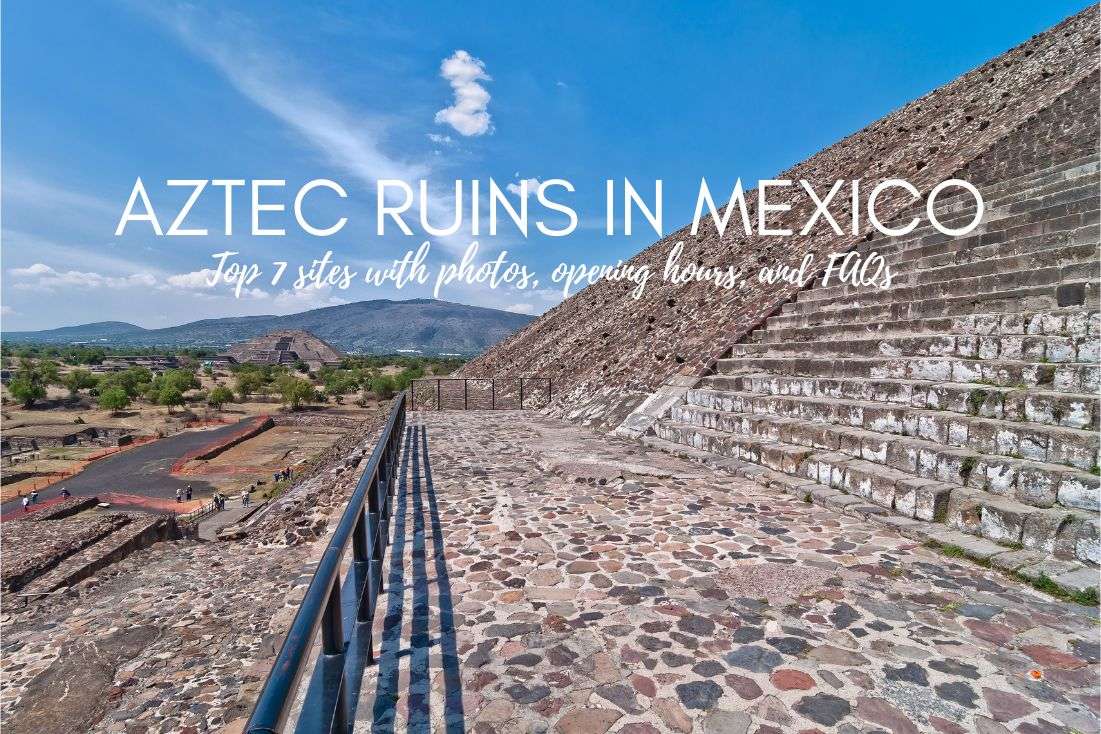






Comments | Thoughts? Give us a shout!